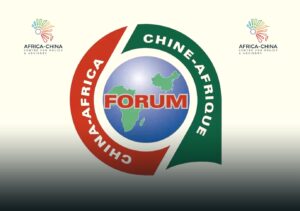
The Forum on China-Africa Cooperation (FOCAC), established in 2000, has significantly shaped Africa’s development model through extensive economic, social, and political cooperation with China.
This article reflects on FOCAC’s core accomplishments and the potential positive outcomes for African nations from this partnership, focusing on accounting, transparency, and good governance.
Milestones of FOCAC
In its first decade, FOCAC created frameworks for cooperation in infrastructure development, agriculture, and education. The 2000 Beijing Summit formalized China-Africa relations, initiating partnerships through the Beijing Declaration and the Program of China-Africa Cooperation in Economic and Social Development.
The Addis Ababa Summit 2003 focused on financial support for development projects, featuring fiscal consolidation and the China-Africa Cooperation Fund. The Sharm El-Sheikh Summit 2009 saw China commit $10 billion in concessional loans to African nations, emphasizing infrastructure and human resource development. The Johannesburg Summit 2015 introduced the “Ten Major Cooperation Plans” with a $60 billion support package for industrialization, agricultural modernization, and transportation.
FOCAC expanded to include the digital economy, healthcare, and green development. The 2018 Beijing Summit committed another $60 billion for industrial promotion, infrastructure connectivity, and trade liberalization.
The 2021 Dakar Ministerial Conference emphasized multilateral cooperation to address COVID-19 and future pandemics, including a waiver on intellectual property rights for vaccines and the provision of one billion vaccines.
Achievements of FOCAC
FOCAC has significantly boosted Africa’s economic growth through trade, investment, and infrastructure development. Around 20% of the region’s exports now go to China and about 16% of Africa’s imports come from China, according to the International Monetary Fund (IMF). This amounted to a record $282 billion in total trade volume in 2023. China’s FDI in Africa reached over $5 billion by 2022, representing 4.4% of the region’s total.
Chinese investments have addressed Africa’s infrastructure challenges. The $3.4 billion Ethiopia-Djibouti Railway, completed in 2016, reduced travel time from several days to less than 12 hours, enhancing trade. The Kafue Gorge Lower Hydropower Project in Zambia, costing $2 billion, added 750 MW to Zambia’s electricity supply, supporting economic activities. Huawei’s involvement in Kenya’s National Optic Fibre Backbone Infrastructure (NOFBI) improved internet access, advancing ICT development.
FOCAC has also bolstered human capital in Africa. Over 50,000 scholarships were awarded to African students between 2000 and 2020, with organizations like the Confucius Institutes facilitating cultural exchange and education. The “African Talent Program” has empowered Africans in agriculture and healthcare. During the COVID-19 pandemic, China provided millions of PPE units and donated over 400 million vaccine doses to African countries.
FOCAC’s recent focus includes promoting sustainable and green development, aligning with global environmental goals. Initiatives like the “Green Development Plan” support renewable energy projects and sustainable practices. The Nyabarongo II Hydropower Project in Rwanda, funded with $214 million from Chinese banks, aims to generate clean energy. China’s support for the Great Green Wall Initiative combats desertification in the Sahel, enhancing environmental conservation and agricultural productivity.
Challenges and Criticisms
While FOCAC has achieved significant milestones, it is essential to acknowledge the potential challenges and criticisms. Concerns over debt sustainability have been raised, with some African nations experiencing high debt levels, as Africa’s total external debt increased more than fivefold between 2000 and 2020 to $696 billion. Of course Chinese lenders accounted for just 12 per cent of this total.
Additionally, there have been criticisms regarding the transparency of certain projects and the labour practices associated with some China-Africa investments. Further, lack of transparency makes it challenging to unpack and quantify the total outstanding public debt stock owed to China, the extent of repayments and its composition in terms of commercial or official bilateral loans.
Impact on Accounting Practices
The FDIs from China have also influenced African accounting practices, transparency, and financial reporting standards. Initiatives related to auditing standards, anti-corruption measures, and capacity building for African accountants have been a work in progress. Programs aimed at enhancing financial governance and accountability have contributed to improving the overall financial landscape in Africa.
Conclusion
FOCAC has evolved from a platform for diplomatic dialogue to a comprehensive mechanism for economic and developmental cooperation between China and Africa. Over the past two decades, FOCAC has contributed to substantial economic growth, transformative infrastructure development, and enhanced African human capital.
Despite potential challenges and criticisms, the future trajectory of FOCAC promises further advancements with a growing emphasis on sustainable development and digital innovation, aligning with Africa’s developmental needs and aspirations. FOCAC supports Africa’s journey towards sustainable and inclusive growth by focusing on accounting, transparency, and good governance.
Dr. Mnongya is a Senior Research Fellow (Tanzania), Africa-China Centre for Policy and Advisory and Lecturer, Ardhi University, Tanzania










